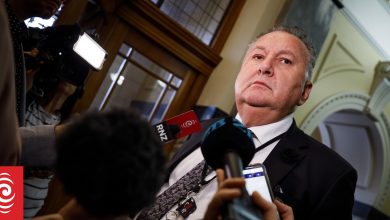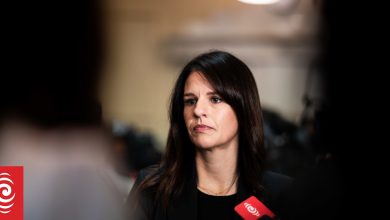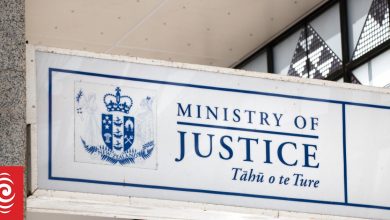Coalition shrugs off attrition concerns over 500 police promise
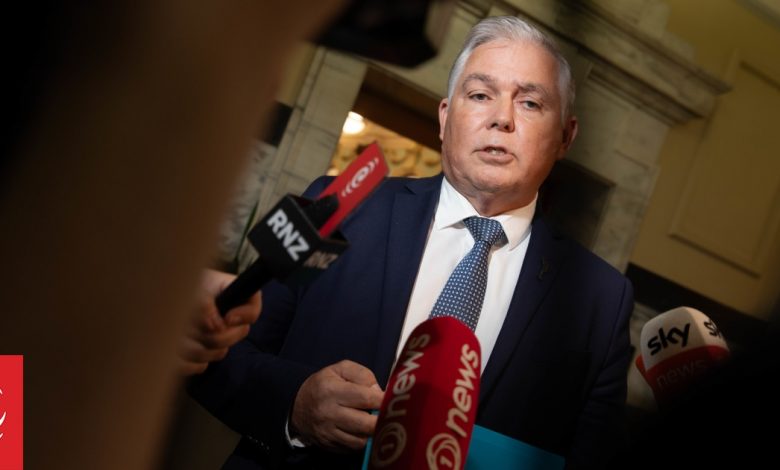
The coalition is confident it can deliver on its promise of 500 extra police by the end of next year – despite the opposition raising questions over attrition.
Police Minister Mark Mitchell and his associate Casey Costello appeared before the Justice Select Committee on Thursday, defending the government’s spending as part of the new Scrutiny Week at Parliament.
Mitchell was grilled by MPs for an hour and a half: Over whether upgrades to the 111 call centre had been funded (they hadn’t), how family violence and mental health callouts could be dealt with (the government is looking at having other agencies do more of these), and how new anti-gang laws would be enforced (more on that below).
Anything about the coalition pledge for 500 additional police officers, however, he refused to answer – having handed responsibility for that policy to Costello.
Labour’s former police minister Ginny Andersen, now in opposition, was keen to find out whether the 500 number would include the 322 vacancies at police. She calculated that with an attrition of about 500 officers a year, and only 180 having graduated so far in 2024, the prospect was looking unlikely.
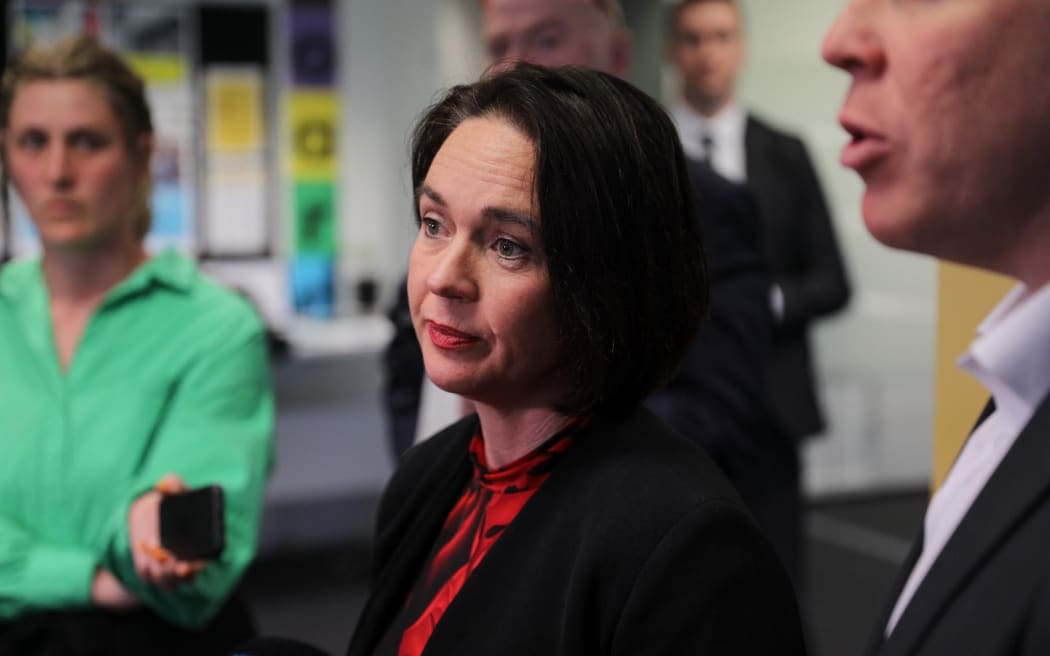
“You’re down about 1000 police officers in order to be able to meet the goal of delivering 500 in two years. Are you prepared now to say that you’re just not going to make that target,” she asked.
Mitchell was firm.
“No, absolutely not. And as much as I’d love to get into this, I’m very conscious that I’ve got my Associate sitting behind me. And she’s very keen to come forward and talk to this policy.
“It’s a great policy. I love it. It’s 500 additional police officers. It was part of our coalition agreement, which New Zealand First of course promoted and brought to the table. I think it’s only fair that my associate the honourable Casey Costello can speak to that.”
During Costello’s shorter appearance afterwards, she was clear it was her responsibility – and argued Mitchell was merely being respectful of her responsibility.
“Yes, I have delegated responsibility – that’s never changed. That will continue, but I also continue to work with Minister Mitchell to achieve those objectives.”
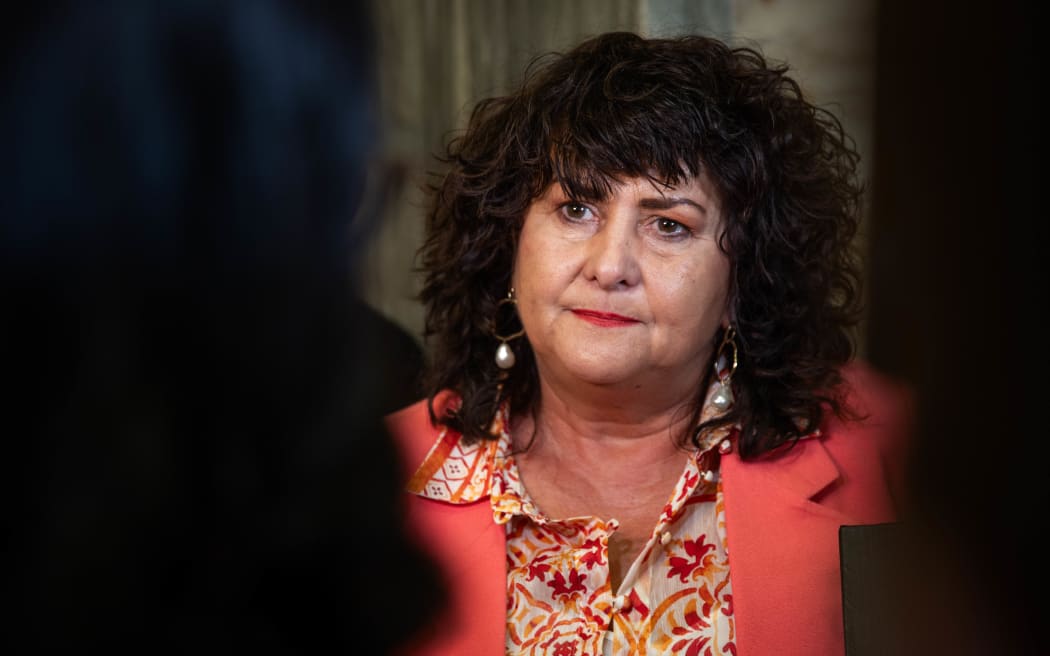
Andersen suggested “since it has become apparent that delivering 500 net police in two years is almost impossible, that Minister Mitchell and the National Party have visibly stepped backwards from this coalition agreement and left you holding the can”.
Costello said she completely disagreed.
“We meet every week, we meet collectively – myself and minister Mitchell – we work with police officials, we are totally committed … It’s a close working relationship and I don’t feel at all that I’ve been left high and dry. I feel like I’m fully supported.”
She said some people who had left police were also rejoining, and the force had seen a “marked increase” in applications for police college training.
“I think last year we were tracking about 350 per month, we’re up over 500 and I think in May we were over 600 applications to join the police,” she said.
“I’m advised that the police college has the capacity to take 10 wings of 80 in a year, which would give us an 800 on a maximum capability and those are the targets we’re setting.”
The numbers were getting murkier, but after further questioning, Costello set out the exact target the coalition promise was aiming for: “I couldn’t be more clearer. We started with 10,211 and our target is 10,711”.
Andersen was convinced that with attrition, however, the coalition would already be nearly 900 police short for this year alone.
Police Commissioner Andrew Coster stepped in: “What I heard of the summary of those numbers doesn’t quite line up with the very clear statement that we need to have 10,711 in the two-year period,” he said.
He noted that people rejoining police was outside the college graduation process, and “where the economy is a bit slower we tend to see more rejoins come back”.
He also said attrition rates could vary substantially – getting down to just over 2 percent during the Covid-19 period. In earlier questions to Mitchell, Coster also highlighted the Australian campaign aiming to lure New Zealand’s police did not appear to be very successful.
“So far, we can’t detect an uptick in people leaving the police, and our attrition, as a consequence of Australian recruitment. We still believe the numbers to be well within our normal attrition rate.
“I have a good relationship with my Australian colleagues, so hopefully they won’t mind me saying that often the grass is not greener – it’s turned out to be red dust’. And the experience of policing in Australia is very different and many of our officers who go there, come back.”
Costello said she had sympathy for Andersen, who a year ago announced Labour had at last met the 2018 target set when Labour was in government with NZ First, of increasing police numbers by a “record” 1800.
Critics, including National, disputed that at the time – noting 270 of them were non-sworn authorised officers.
“I have full sympathy, I think the honourable Ginny Anderson had a massive task on the 1800, and it was a difficult process,” Costello said.
“So we wanted to be very clear around what this actually means and taking away all the fogs and smoke and mirrors around. Here’s a number of when we started and government and here’s a number we’re going to aim to achieve within that two year period.”
However, the Police Association also criticised this year’s $220m Budget funding for 500 new constabulary officers, noting it included nearly 200 vacant roles that came from a previous hiring freeze, and ignored about 175 “corporate support” staff facing losing their jobs.
One officer at the time, who did not want to be named, said it could mean frontline officers having to take on the burden of the work that had previously been done by those support staff.
Time will tell exactly how this new coalition calculates its increase, and whether it can meet its target by the deadline.
Gangs
Mitchell had earlier been pressed on exactly how police would enforce the new anti-gang laws being put through Parliament, which include a nationwide ban on gang patches in public places.
Coster said the gang legislation was yet to be passed but the recently announced national gang unit and district gang units would have a key role to play.
“I have no doubt that it is a significant challenge but we are ready to move resource where required to ensure that we can enforce the new legislation,” he said.
Green Party MP Tamatha Paul pushed Mitchell on how this would work, however.
“I mean, bet gang members are not just going to say ‘Okay, here you go, here’s my patch’, you know, you’re going to have to actually, probably physically take it from them,” she said.
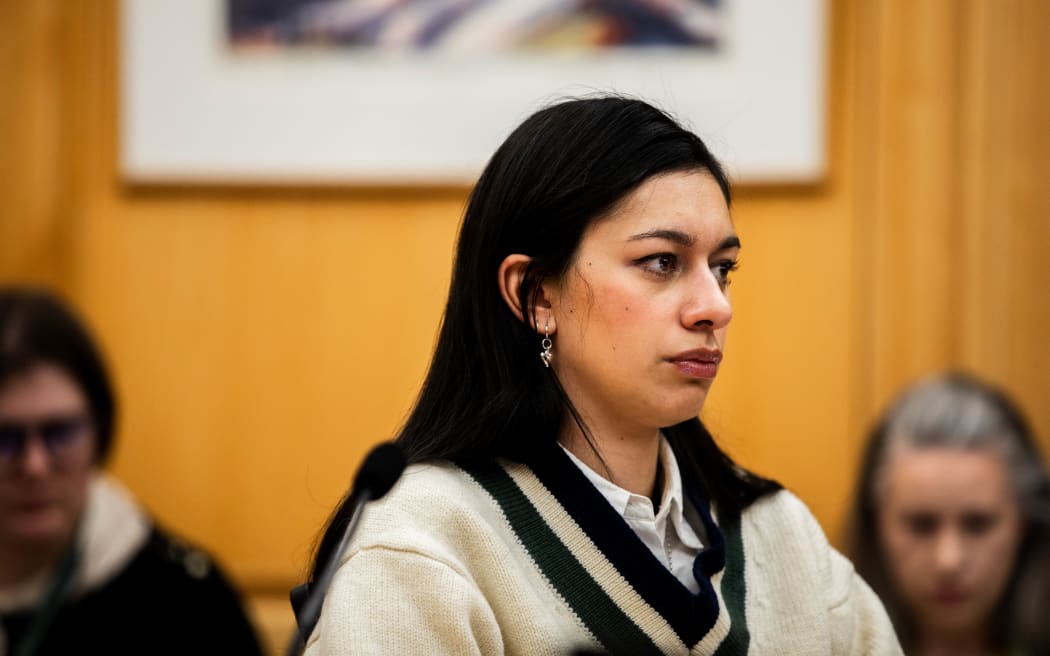
“Is it only going to be this gang unit that’s going to enforce this policy? Because I can’t see an entry level police officer, young, bright-eyed, on a very low pay, coming in and asking a whole gang to take their patches off.”
In response, Mitchell argued the government’s approach would help make that young officer’s job easier.
“As the police association have said and a lot of the commentators have said, the gangs are out of control and they’re carrying firearms, they’re more violent, and they’re willing to use them,” he said. “So what we’re trying to do as a government is re-establish an environment where the guns have been taken off the gangs, the gangs understand that they’re not above the law, and the police enforce the laws that we’re passing.”
Paul questioned how this could be done safely if Mitchell continued to refuse to speak to the gangs.
“From what I’ve heard from gang members there was some good work going on with the commissioner and that conversations were happening – and that is probably a vital step if you want to reduce the risk that comes to police officers in enforcing that stuff,” she said.
Mitchell said that was an operational matter, and police would continue to do that.
“But as the minister of police I’m very happy to meet with gangs – but I just want to be very clear with you that the conversation we”ll be having is quite simply this: How do we help you leave the gangs, especially your gang members that have families, how do we actually exit them.”
He said that was the only conversation he would be having with gangs, and similar legislation banning patches in schools, hospitals and public buildings had “been very effective and it’s stopped gang patches appearing inside our schools”.
According to the news on Radio New Zealand

